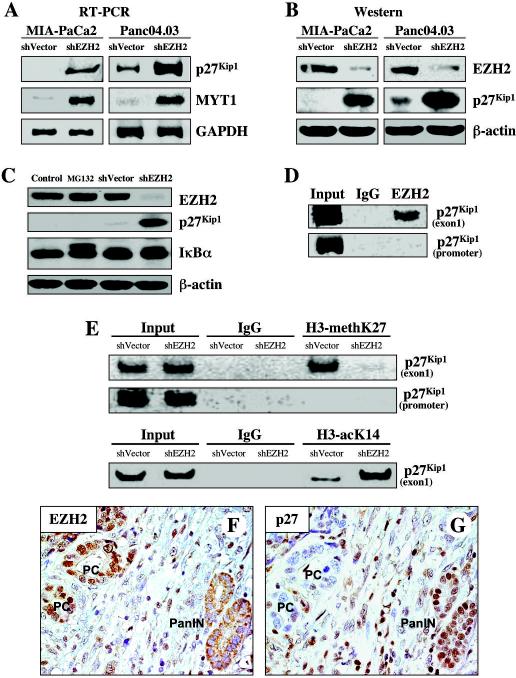Figure 3. Depletion of EZH2 leads to re-expression of p27Kip1 in pancreatic cancer cells.
MIA-PaCa2 and Panc04.03 pancreatic cancer cells were transfected with a control vector (shVector) or the shEZH2 silencing vector (shEZH2). A, 48 hours post-transfection, the cell pellet was collected, mRNA was obtained and RT-PCR was performed as described in Materials and Methods. Increased expression of MYT1, a known EZH2 target gene, was used as a positive control. B, 48 hours post-transfection, the cell pellet was collected, protein was obtained. Cell lysates were separated by SDS-PAGE, transferred to PVDF membrane, and probed with antibodies to indicated proteins. C, 48 hours post-transfection, Panc04.03 cell pellet was collected. Panc04.03 cancer cells were treated with DMSO (Control) or MG132 (10 μmol/L) for 6 hours. Cell lysates were prepared, separated by SDS-PAGE (50μg/well), transferred to PVDF membrane, and immunoblotted as indicated. An increase of IκBα expression was used as a positive marker of MG132 treatment. D, Binding of EZH2 to the promoter or exon 1 of p27Kip1 gene was assayed in Panc04.03 cancer cells by ChIP. E, Panc04.03 cancer cells were transfected with a control vector (shVector) or the shEZH2 silencing vector (shEZH2). 48 hours post-transfection, genomic chromatin fragments were immunoprecipitated with trimethyl-H3-K27 and acetyl-H3-K14 at the p27Kip1 promoter or exon 1. PCR analysis on input chromatin (first 2 lanes) confirmed that equal chromatin amounts were used for ChIP. (F, G) Immunohistochemical staining of a pair of serial sections from the same pancreatic tumor demonstrates nuclear localization of EZH2 (F) and loss of p27Kip1 expression (G) in the same cancer cells, whereas absence of EZH2 nuclear staining, but p27Kip1 nuclear accumulation has been observed in benign pancreatic lesions (G, F). Pancreatic intraepithelial neoplasia (PanIN).

